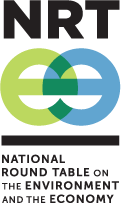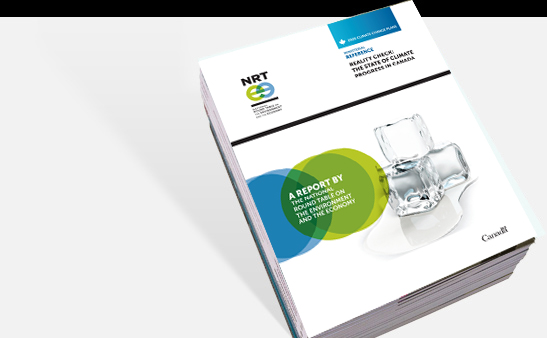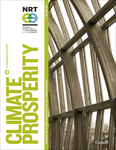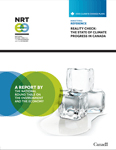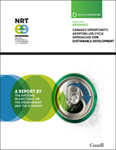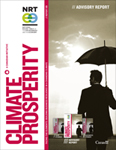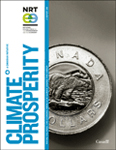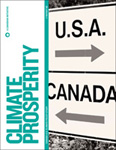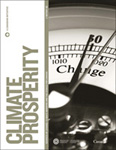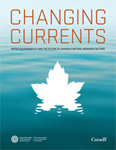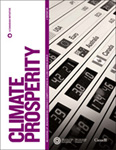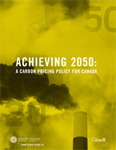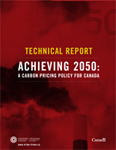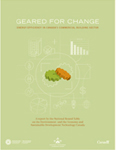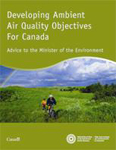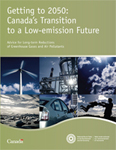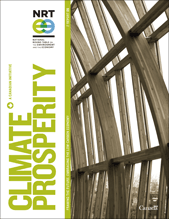Framing the Future: Embracing the Low-Carbon Economy – Research
October 18, 2012
Framing the Future: Embracing the Low-Carbon Economy
A low-carbon economy is no longer a concept of the future. Governments around the world are moving ahead, and a number of jurisdictions already have formal low-carbon growth plans in place. Our research and convening led to a clear conclusion: Canada is well positioned to thrive in a low-carbon context but needs to act now to maximize the potential benefits.

This research aims to identify what the opportunities are, where they reside and how they should be harnessed in terms of investment, governance structures and mechanisms, and policies related to energy and emissions, innovation, trade, and labour markets. We will provide a national, regional and sectoral perspective.
Building on work undertaken in Measuring Up and Parallel Paths, this study will make a case for the economic opportunity available to Canada through early transition to a low-carbon economy, contingent on smart investments today. Opportunities are of two types: 1) domestic and international market growth in low-carbon goods and services; and 2) the avoided cost of reactive policy and sharp transition to a carbon-constrained economy. The study will assess the necessary pre-conditions for harnessing this opportunity and identify the key policy options that can be exercised to achieve the desired outcomes. It will provide a realistic policy pathway forward for Canadian federal and provincial public-sector and private-sector decision-makers to enable Canada’s economy and industry to succeed in this transition – to ensure continued growth and competitiveness in a carbon-constrained future.
Our objectives with this study are two-fold:
1. To increase awareness on the part of Canadian public- and private-sector decision-makers of both the economic risks and opportunities associated with the expected decarbonization of the global economy; and
2. To articulate a coherent policy pathway (a low-carbon growth plan) for ensuring Canadian economic growth and competitiveness under future global carbon constraints including:
- Positioning Canada to take advantage of anticipated growth opportunities in domestic and international low-carbon goods and service (LCGS) sectors; and
- Ensuring current and future economic activities underpinning the Canadian economy are robust and resilient to this new reality.
New research is being used to articulate a low-carbon growth plan that will ensure Canada’s economic growth and competitiveness under expected future global carbon constraints. The NRT assesses opportunities in domestic and international low-carbon goods and service (LCGS) sectors, and determines how Canada can best position itself to capture the benefits of this transition and manage the associated risks. We have focused our research on areas that influence Canada’s competitiveness, including energy and emissions, trade, innovation, labour markets, investment, and governance.
Consistent with the NRT’s process, this program has involved a combination of research and convening. In addition to in-house research conducted by NRT staff, we have commissioned several new studies. Recognizing that regional perspectives are essential to the successful development of a low-carbon growth plan, the NRT undertook, over the course of November and December 2011, a Canada-wide convening program with its regional partners: the Canada West Foundation, the Mowat Centre for Policy Innovation, Ecotech Québec and the Atlantic Canada Opportunities Agency (ACOA). A total of nine dialogue sessions were held from coast-to-coast.
A number of common themes emerged from these sessions. We heard that Canada’s strength was in its people through our talented workforce, our energy expertise, and our innovation and R&D capacity. We also heard that a low-carbon transition is necessary but difficult. Identifying key areas of risk and opportunity will be required, such as in transportation, energy efficiency technology commercialization, and electricity production. Inter-regional cooperation was highlighted as an area that could yield significant benefits particularly with respect to providing low-carbon electricity but also in other areas such as energy efficiency. Participants stressed that the government has an important role to play as a facilitator and enabler of the transition, in providing leadership and creating longer-term policy certainty.
Paralleling its research, the NRT held three issue-specific convening sessions, providing a top-down perspective from sector experts to complement both our in-house research and the bottom-up perspective obtained through regional convening. These expert convening sessions on the topics of energy, trade and innovation, drew leading thinkers from industry, government, and academia.
